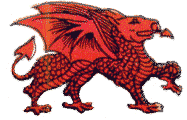Fact behind the Fairies;
The most controversial story known in West Yorkshire involving fairies was the case of the Cottingley fairies, it was brought about in the north of England called West Yorkshire by two girls who claimed to have seen and taken photos of fairies in the glen of Cottingley. The truth is that they had faked the photos to convince adults that had gone to see if the allegations where true, but they still claimed even though they had done this terrible thing by lying about the pictures, they still wanted people to believe that they had really seen these fairies.
Fairies are small supernatural creatures of human form. Some fairies were good and some were thought to be pretty frightening, whilst being onset of Christianity, these creatures whilst still a Myth and legend, grew less forbidding and less powerful over the centuries.
Fairies are so prevalent in mythical cultures that its natural to wonder where they came from. Some people believe that fairies are the soul of the dead.. E.g. which are people that wasnt thought to be good enough to enter into Heaven but yet not bad enough forHell.
How to see Fairies;
Humans rarely see fairies, but Legend says that if you pick a four-leaf clover and lie quietly in a field, you will soon be visited by dancing fairies.
You can also look for a stone with a naturally hole coursed by running water, just look down the hole and you will see fairies.
Fairies are said to appear most frequently on high days of the Celtic calendar E.G. (May Eve) when they fight, (Midsummer Eve) when they celebrate and (November Eve) when they dance with ghosts and lament the coming of water.
History behind the Elf;
As the longest-lived species known in the World, elves hold a special place in the imagination and the land. Though reclusive and notoriously stingy with giving out information about them, it is quite commonly known that elves have some relation to faeries and other magical arboreal creatures, though exactly what the link is remains unknown, even to most elves.
The long life of an elf makes them cautious, for they have much to lose by making a thoughtless choice, and much time to contemplate things to avoid doing just so. Elves culture is incredibly conservative and well established. The few elves that are seen extant in the World are those that the community has sent out so that their nation might not be caught unawares by events outside the boundaries of their wood.
Santas Elves;
Even Santa as Elves in the North Pole and what they do is help him over the year to sort out all the letters from the children in the world looking for all the good girls and boys that deserve a special present, from the ones that havent been so good, but the good thing is they never leave anyone out, The Elves also look after the reindeers and make the toys for Santa to hand out on Christmas Eve.
A short story about the Elfs;
Santas Elves always have a tough time keeping up with jolly St. Nicholas on Christmas Eve, since Santas sleigh isnt big enough to carry all the toys to the girls and boys around the world, so what they have to do, is all rally around and make it as fast and easy as possible to help Santa deliver the toys before the end of the night because they wouldnt want to disappoint any of the children and that shows how wonderful they all are :) Santa is one lucky man!!
Pixies are tiny magical creatures born into existence, they are whimsical creatures with no real purpose, and their history is one primarily of peace and quiet. Pixies spend most of their time studying magic, although they are wont to take it particularly seriously. They have enjoyed a good life of leisure and comfort in the forests. The darkest hour for pixies came with the evolution of llaiadains, pixies that lost their wings. These were evil pixies that had committed crimes against the pixie kingdom. Their existence forced the pixies to become more vigilant in their own protection, for they now had a mortal enemy. Since then, many pixies devote their lives to protecting forests, as opposed to just living in them. The growth of civilization and its infringement on the pristine, natural land has also forced pixies into more action.
Pixies also have wings that are iridescent, often casting beautiful colours about, reflecting the light, as they hover. With wings they naturally can fly. They also have the natural ability to turn invisible, which happens to be uncontrollable since it is their natural state. Due to their small size, pixies are incredibly dexterous and can move very quickly. Most pixies do care about their looks, since they can be very beautiful and exotic looking. Some are less interested, and they are not in general, overly obsessed with their looks.



















